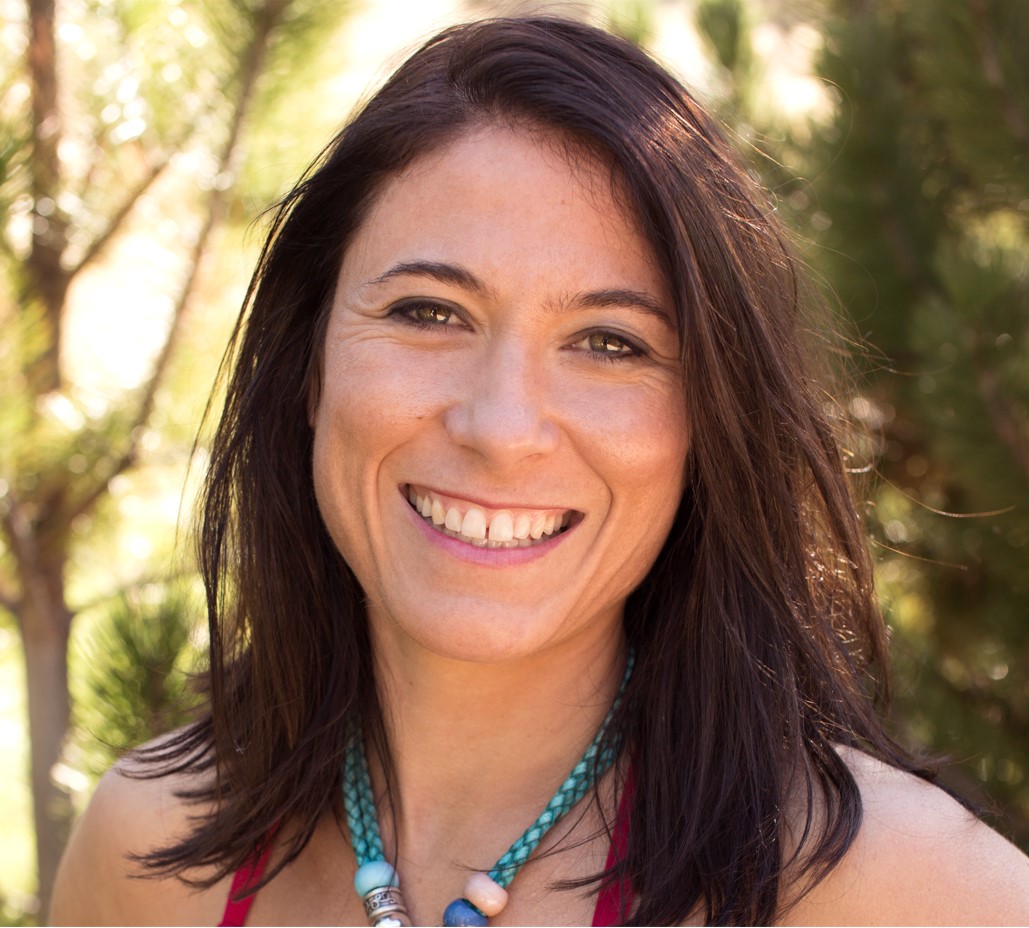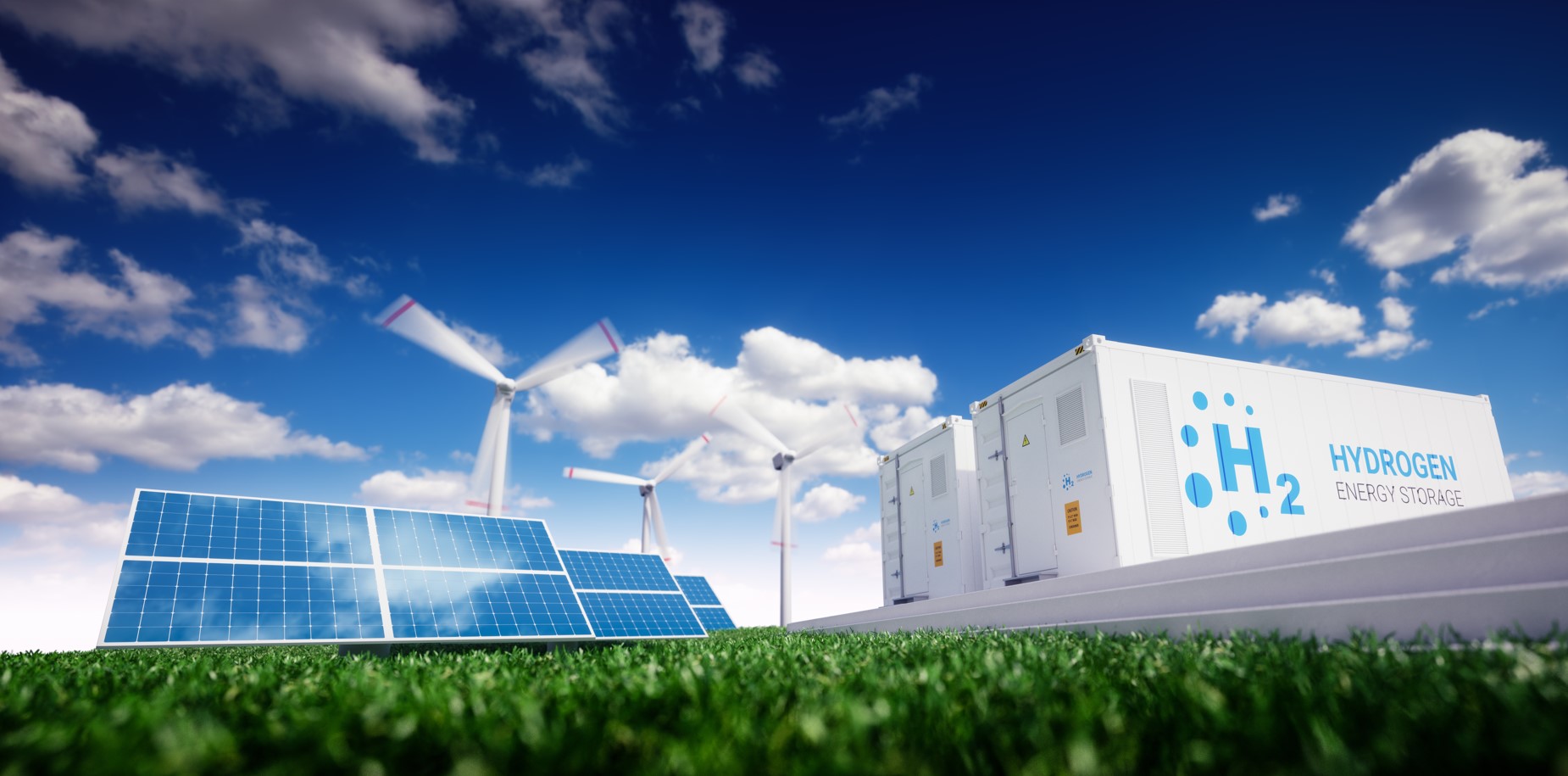Special Focus: EU Green Deal - Scientific leadership towards a sustainable future
Newsletter

Alexandra Dubini, MCAA Board member, was invited as a speaker at the MSCA European Green Deal Cluster Event that took place between 6 and 7 July 2021. You can read the powerful speech she gave in front of a digital audience.
Hi everyone, thank you for being here and thank you to the organisers for inviting me to this event. I am extremely happy to be a representative for scientists in general and, in particular, MSCA Fellows and Marie Curie Alumni Association.
I have called this talk 'scientific leadership towards a sustainable future' because I think it’s time for us scientists to reclaim our position and role in society especially after what we have experienced with COVID. What I mean by that is we have seen science being discussed by non-scientists, by non-experts; it has been communicated in such a basic way that it has lost the essence of science itself and what it means.
It’s time to advocate our strength more, our skills, and our involvement in creating a better world. We need to show how deeply we are engaged and dedicated to serving society, especially when it comes to climate change.
I am going to invite you into my journey in science, how I ended up working in the renewable energy field, what we need to do to implement the Green Deal.
I started my career as a scientist in 2001 as a PhD student in the UK and for me it was the beginning of the adventure. I decided to study hydrogen metabolism in microorganisms because my supervisor at the time told me that eventually we would use H2 in cars. His explanation convinced me that thanks to science, and potentially my work, one day we might have an alternative fuel. I must say that at the time, I did not have such a sense of urgency about climate change per se but I knew that H2 was important. Why? Because it’s the only renewable source of energy that does not release CO2 in the atmosphere and is 100 % clean. So I was excited to start working in this new field at the same time as developing molecular biology and biochemistry skills.
After my PhD I had the option of going back to France (my country of origin) or going to the USA, which, at that time was recognised as the best place to do state-of-the-art science. I must say that China is now a great competitor to the US and I cannot stop thinking why it is not Europe instead. As a child of the European Union, I had already lived through one of the now most famous programmes of the European Commission, the Erasmus programme, which in 1998 took me to the UK. So I knew about expatriation, I had learned English, and I wanted to further expand my skills and develop my own research.
Next, I joined the National Renewable Energy Laboratory (NREL) in Colorado, in the US. This is one of the 17 national labs funded by the DOE, Department of Energy, and the only one entirely dedicated to renewable energy for the last 40 years. NREL is one of the references worldwide in this field and this is why I developed a great interest in renewable energies in general and of course H2.
There I did a postdoc of 2 years and was subsequently hired as a permanent scientist, thanks to a grant that I co-wrote with Maria Ghirardi, the manager at the time, and was awarded by the Biological Environmental Research (BER) department of the DOE that had decided to fund research on hydrogen. So here I was, a young women scientist starting my own research within our lab, creating my own team, meeting with the programmes managers in Washington, so it was a bit overwhelming but that would have not been possible without the help and support of Ghirardi. She was a great mentor, and helped me develop resilience.

Our research was fully dedicated to the understanding of how green algae produces hydrogen and also how to commercialise it. So in our lab there was a perfect mix of fundamental and applied research. There, I had many opportunities to work on innovative research. We collaborated for example with Shell the petroleum company searching for algae strains producing high levels of hydrogen. I also collaborated with NASA and sent green algae producing hydrogen into space. I was also able to diversify my research by investigating biofuels for biodiesel application for example. So NREL 'was' or 'is' the perfect interface between universities, private industry, and other organisations or any type of institution.
Going back to the second stage of my scientific career after 10 years in the United States, I was considering going back to Europe for family reasons, contemplating different options, but it is always difficult to leave everything behind and start somewhere new without knowing what to expect really.
I wrote a project to work in France and benefited from an MSCA COFUND Fellowship. This allowed me to work and develop collaborative relationships there. It really helped me start to reconnect with the European science landscape. But as life would have it, my husband got a tenured position in Spain and thanks to another MSCA COFUND action, I was able to join him at the University of Cordoba. So those two MSCA Fellowships gave me the opportunity to return to Europe in a more secure way. I felt that there was a mechanism to support scientists. In both countries I had the freedom to develop my own investigation and had fruitful collaboration with the host lab. I learnt from them and I shared my own expertise and knowledge. So it was a win- win situation. I would say that those MSCA Fellowships were essential in my career to return and settle down in Europe. In the end, I wrote an ERA-NET project. This allowed me to secure my own research within the university. Today, I am a distinguished researcher at the University of Cordoba. Unfortunately many of my colleagues along the way did not get a permanent position and even less so women scientists, so this is really something that needs to be improved in Europe; we need investment in the whole EUROPE and more permanent jobs, not just tenured positions in academia but also in other public institutions, in policy, in government and industry that will help implement the Green Deal.
Of course, today I am still working on H2 production but I have expanded my research to algae bacteria consortia and wastewater remediation. Because I am more and more interested in finding solutions for climate change. Especially so since I went to Antarctica. I went on expedition there with another 80 women from different scientific backgrounds and the goal was to promote women in science while experiencing nature at its best. But I was very sad to see ice falling, a lot of brownish land and plastic when Antarctica should be a protected land and free of any sign of human activity. That really gave me the final sense of urgency for climate change issues and I realised how much more scientific leadership is needed. Nowadays, I am interested in using algae as a tool for biotechnology helping us transition to a more ecologic society. For me, this is my direct contribution to a greener society.
I want to thank the European Commission for all the efforts, the programmes, and frameworks that they put in place to support scientists – all the MSCA actions are key players. They have an added value since they train scientists in academia, industry, etc. … in all areas (biodiversity, sustainable agriculture, climate action, and so on). The MSCA Fellows will represent a critical mass of highly trained scientists and we need them for the Green Deal. But we need to think about what comes next. If we want the Green Deal to be implemented over the next 10 years we need to think about what will happen to all those scientists after their 2- or 3-years contract. In fact, climate change won’t stop after 10 years so we do need a long-term plan, and that’s exactly what should happen in Europe with the Green Deal.
- We need to have renewable energy has one of the priorities
- develop more transdisciplinary research
- we need to coordinate all those activities
And perhaps what is even more important is political courage because many times science and scientists are being forgotten within the long chain of institutions. For example, it is only now in 2021 that the European Commission wants to tackle all aspects of climate change and is launching the Green Deal. This is a huge thing of course. And for me what is even more exciting is that within the European Innovation Council programme there is a specific call entirely dedicated to hydrogen production, this is the Holy Grail for me! We have never seen anything like this in Europe before. I would talk about political bravery! But still, I had to wait 20 years to get a dedicated European call to hydrogen. The good news though, is that COVID unfortunately has put science on the table and it is giving us the opportunity as society to react quickly to big challenges and as scientists to show we are up to the challenge, even though climate change is an even bigger threat than COVID.
Before I finish my presentation I want to mention the Marie Curie Alumni Association of which I am Board member. The Association regroups now more than 19 000 members from 150 different nationalities and we have the mission to support the MSCA Fellows professionally and personally. We intend to offer services, and of course develop an active network of scientists. So if you are not a member, please join us.
So now to finish I would like to say that with the Green Deal we have an opportunity to reclaim our role in society and need to gain even more momentum to act.
Science is the perfect tool to achieve a better world, but we need both European political courage and scientific leadership to get a sustainable future and that can be done through three things: I hope the NEW ERA pact that will come into place soon will help change this.
1. Dedicating funding to hire permanent scientists men and women from different scientific backgrounds and in any type of institution.
2. Switching this funding to long-term funding for labs and projects, both fundamental and applied in academia and industry.
3. Finally we need to invest in specific infrastructure, what about Green Deal laboratories or institutions?
Like the Commissioner Gabriel said on the last day of the R&DI event, “let’s be bold” together, and I would be very happy to help.
Alexandra Dubini
MCAA Board Member
alexandra.dubini@mariecuriealumni.eu
Inspired?
Watch Alexandra’s presentation